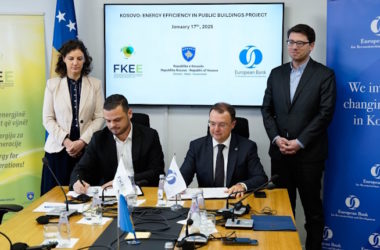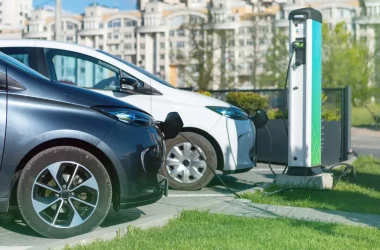OMV Petrom has made good progress in the development of the Neptun Deep project, and drilling is expected to start in 2025, with the first quantities of natural gas on schedule for delivery in 2027, the company’s CEO Christina Verchere said in an interview with AGERPRES.
Christina Verchere also spoke in the interview about the company’s 2030 Strategy, about OMV Petrom acquisition of photovoltaic parks, about the demands of environmental NGOs to stop the exploitation of the Neptun Deep gas field, a project considered to have a major impact on the environment, and about the solidarity tax paid by OMV Petrom.
OMV Petrom’s CEO on the company’s 2030 Strategy: „In less than three years since we launched the strategy, we have achieved a lot: we have started developing the largest natural gas resource in the EU – Neptun Deep, we have set up the largest solar and wind portfolio in Romania and we have started the biggest investments for cleaner transport, through the production of sustainable fuels and the electric vehicle charging network.
These major projects give us confidence that we can be leaders of the energy transition in Romania and the EEA and maintain our ambition of Net Zero operations until 2050.”
Christina Verchere, on calls by Greenpeace and other environmental NGOs to halt exploitation of the Neptun Deep gas field: „First of all, I would like to stress that Neptun Deep is a strategic project for Romania and the EU. It will contribute to the country’s energy independence and economic growth as well as to the security of supply of the region. The environmental impact, as indicated by the conclusions of the Environmental Impact Assessment and the corresponding assessment reports, shows that the Neptun Deep project does not have a significant impact on environmental factors and the socio-economic environment.
The project is based on international practices and technologies used in deepwater exploitation worldwide. The estimated direct carbon intensity of the project is significantly below the industry average. We are following all procedural steps to ensure that the Neptun Deep project is implemented safely and in full compliance with specific permits and legislation.”
A new analysis published by Greenpeace shows that the final decision to issue the Environmental Agreement for Neptun Deep was issued without taking into account the risks posed by marine mining in the Black Sea and the environmental damage it could cause.
„We don’t see an end to Russia’s war in Ukraine any time soon. It is sheer suicide to build Europe’s largest gas exploitation next to a war zone without first presenting a risk analysis of drifting sea mines on the installations and proposing a series of measures needed to reduce the associated risks. APM Constanta must urgently request these analyses from OMV and Romgaz before taking any final decision on the environmental agreement for the Neptun Deep project” said Vlad Cătună, Campaigns Coordinator, Greenpeace Romania.
Greenpeace Romania has taken legal action against OMV Petrom and Romgaz, the Tuzla City Hall and Local Council, the Dobrogea Litoral Water Basin Administration and the „Grigore Antipa” National Institute for Marine Research and Development for irregularities in the approval processes and lack of transparency regarding crucial data on toxic substances to be discharged into the Black Sea.
The environmental organisation has also launched a petition to protect the Black Sea and stop the Neptun Deep project.









